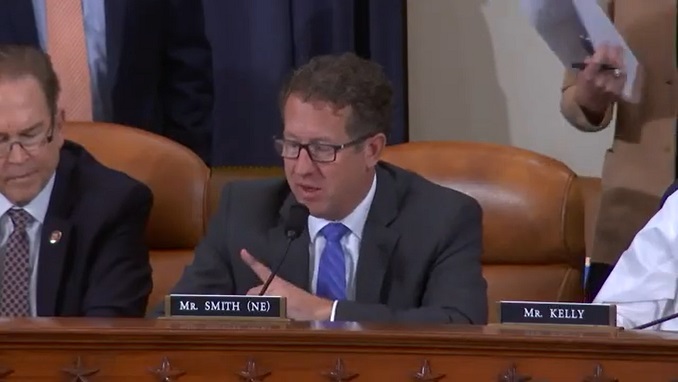On Tuesday, the House Ways & Means Committee rejected a Resolution of Inquiry seeking information from the Biden administration on the World Trade Organization (WTO) waiver of IP protections for COVID-19 technology and plans to expand that waiver.
A Resolution of Inquiry is a tool the House of Representatives can use to seek information from the President or department head. It is a simple House resolution that seeks factual information from the executive branch.
Resolution 1285, sponsored by Rep. Adrian Smith (R-Neb.), asked the Biden administration to provide proof of three things:
- that the first IP waiver improved the global delivery of COVID vaccines;
- that the proposed waiver on therapeutics will improve the distribution of therapeutics; and,
- that China, which is supposed to be excluded from the waivers, will not obtain access to US IP through enacted or proposed waivers.
The Committee rejected the resolution on a party-line vote.
Watch highlights from the hearing:
[embedyt] https://www.youtube.com/watch?v=aQiBYENCdQU[/embedyt]
Concerns about expansion of TRIPS waiver grow
House Republicans presented the resolution amid “growing worries about a plan to broaden the WTO’s TRIPS waiver, which strips intellectual property (IP) safeguards for COVID technology.”
“The administration has not yet consulted with this committee or taken a position on an expanded waiver, nor have they shared any analysis on the impact of expanding the waiver,” the resolution’s author, Rep. Smith.
“We cannot, once again, learn about the administration’s position on an IP waiver after a final agreement,” he stressed, noting “we are already halfway through this 6-month period the TRIPS waiver includes for WTO members to decide on its extension.”
Urging appropriate congressional oversight over the Biden administration on this issue, Rep. Darin LaHood (R-IL) warned against “allowing adversaries like China access to US intellectual property.”
Reiterating his initial opposition to the WTO’s TRIPS waiver, he noted that he led a bipartisan letter with Rep. Jimmy Panetta (D-CA) asking the administration to focus on supply chain resiliency while supporting innovation.
As we reported yesterday, the Resolution of Inquiry was a symbolic vote, which was not expected to pass while offering a means for Republicans to call attention to the issue.
Bio.News earlier pointed out that the possible expansion of the waiver would further eliminate IP protections on COVID-19 therapeutics. In addition, it would undermine investor trust in market incentives for drug research, threatening the potential return on R&D investment that IP may provide.
“It is unfortunate that trade officials in Geneva, including those from the United States, have fallen victim to a false narrative that intellectual property rights stand in the way of beating back the global COVID-19 pandemic. To the contrary: IP is an enabler of innovation and global scientific collaboration. It is what builds trust and fosters the partnerships needed to bring medical breakthroughs to patients around the globe,” said Dr. Michelle McMurry-Heath, President and CEO of Biotechnology Innovation Organization (BIO), in opposing the first waiver.




